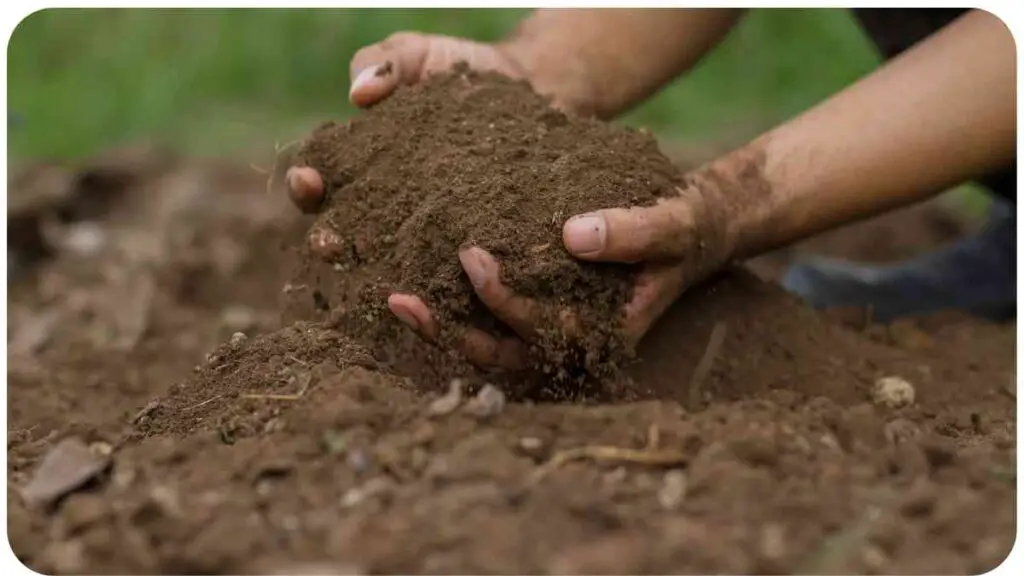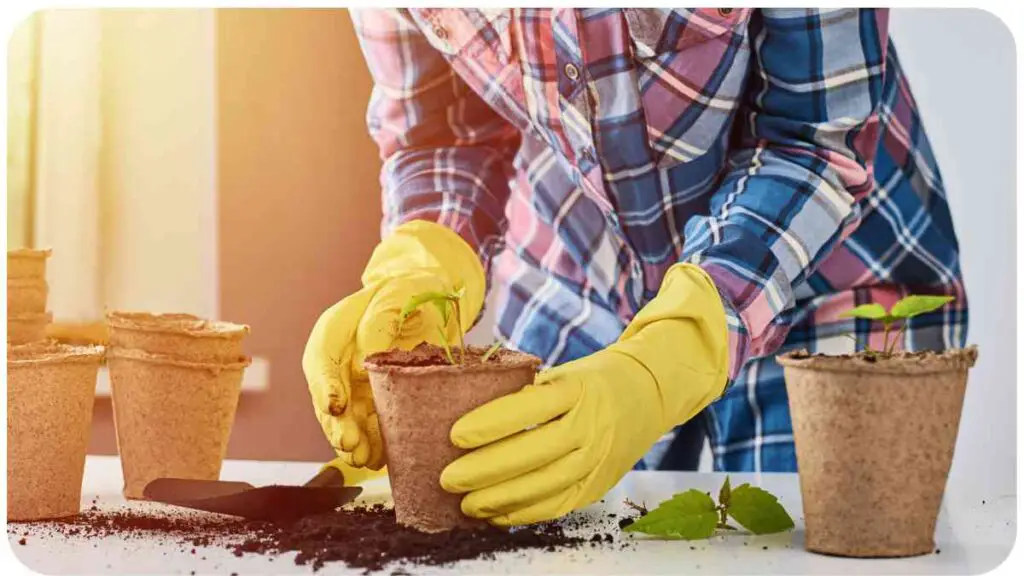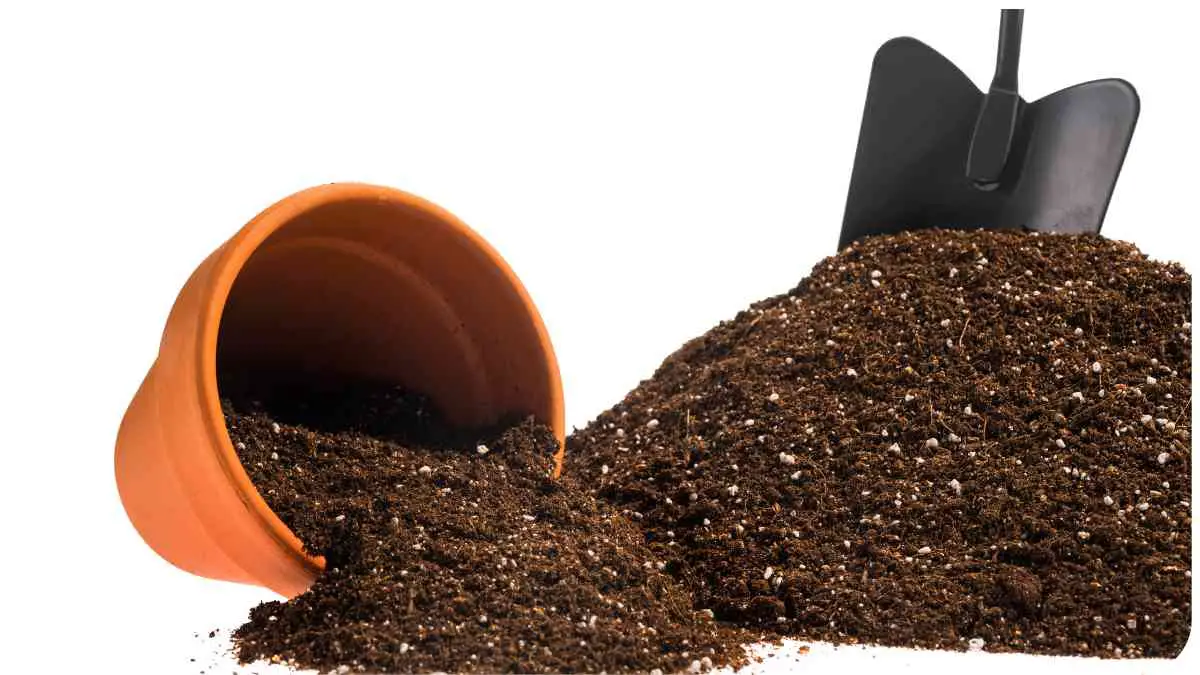If you’re a gardener who loves experimenting with various potting mixes, you might have wondered, “Can I use orchid potting mix for blueberries?” On the surface, they seem like they have nothing in common. Orchids are tropical beauties while blueberries are more of a hardy, temperate crop.
But when it comes to their soil needs, could there be a surprising overlap? Let’s dig in (pun intended) and explore whether orchid potting mix could serve as a suitable medium for growing blueberries. Spoiler alert: the answer might not be as straightforward as you think!
| Takeaway |
|---|
| Orchid potting mix is not ideal for blueberries. |
| Blueberries prefer acidic soil with a pH of 4.5 to 5.5. |
| Orchid mix provides good drainage but lacks moisture retention. |
| Mixing orchid potting mix with peat moss can help adjust pH. |
| Nutrient deficiencies can occur when using orchid mix alone. |
| Consistent moisture is crucial for healthy blueberry growth. |
| The right pot size is important; use at least 18-24 inches in diameter. |
| Fertilizers designed for acid-loving plants are essential for blueberries. |
| Monitor moisture levels regularly to avoid root rot. |
| Experimenting with soil mixes can yield variable results. |
Understanding Blueberries’ Soil Needs

Before deciding if orchid potting mix will work, let’s first take a look at what blueberries actually need from their soil.
If you’re thinking about giving your backyard deck a fresh look, you’ll want to follow a step-by-step guide. For expert tips and a detailed restoration process, you can check out this helpful guide to restoring a backyard deck for useful insights on achieving a durable and beautiful outcome.
Acidic Soil: A Key Requirement
Blueberries thrive in acidic soil, with a pH range of 4.5 to 5.5. This is crucial for the plant’s ability to absorb essential nutrients. Without the right acidity, your blueberry bushes will struggle to grow, and you may end up with sad, berry-less plants. And let’s face it—no one wants a garden full of berryless plants!
Moisture Retention for Blueberries
While blueberries prefer acidic soil, they also love well-draining, moisture-retentive conditions. They hate sitting in soggy soil (who likes soggy feet, right?), but they also despise drying out. It’s all about balance. The soil must be able to hold enough water to keep the plant hydrated without drowning its roots.
What is Orchid Potting Mix?
Now, let’s shift gears and talk about orchid potting mix. If you’ve ever grown an orchid, you know their potting medium is unique nothing like the typical soil you’d use for your veggie garden.
Installing lights in your backyard not only adds charm but also enhances its usability at night. Learn about the various lighting options and installation tips by checking out this article on how to put up lights in your backyard for a step-by-step breakdown of the process.
Components of Orchid Potting Mix
Orchid potting mix usually consists of bark chips, perlite, sphagnum moss, and sometimes charcoal. Orchids grow in nature by clinging to trees, meaning they need a light, airy, and fast-draining potting medium that mimics their natural environment. A traditional garden soil would suffocate their delicate roots.
| Component | Purpose for Orchids | Common Use in Blueberry Soil |
|---|---|---|
| Bark Chips | Aeration and drainage | Not commonly used |
| Sphagnum Moss | Moisture retention | Sometimes used to retain water |
| Perlite | Improves drainage | Helps aerate blueberry soil |
| Charcoal | Absorbs toxins | Not needed for blueberries |
Why Orchids Need Special Potting Mix
Orchids are epiphytes, which means they rely on their potting mix to help them access moisture and nutrients from the air around them. They don’t have the same relationship with soil as your blueberry plants, so their potting mix is designed to be extra porous, allowing maximum airflow.
Comparing Orchid Potting Mix and Blueberry Soil

To truly answer whether orchid potting mix is suitable for blueberries, let’s break down the differences between the two mediums.
If you’re considering storing your car in your backyard, there are several factors to think about. For more information about the pros and cons, including legal considerations, I recommend reading this detailed guide on storing cars in your backyard.
Nutritional Content
Blueberries require a nutrient-rich, acidic environment, while orchid mix is nutrient-light, relying on supplemental feedings for growth.
Acidity Levels
Orchid mixes are often neutral to slightly acidic, but they generally do not hit the low pH levels that blueberries love.
Water Retention Capacity
Orchid potting mixes are designed for quick drainage, which could leave your blueberry plants parched, as they need soil that holds moisture longer.
Soil Texture Differences
Orchid mixes are rough and chunky more like a bag of chips than a bag of dirt! Blueberries, on the other hand, prefer a finer, loamy soil.
Comparison Table: Orchid Potting Mix vs. Blueberry Soil
| Feature | Orchid Potting Mix | Ideal Blueberry Soil |
|---|---|---|
| pH Level | 5.5 – 6.5 (Neutral) | 4.5 – 5.5 (Acidic) |
| Nutrient Content | Low, requires supplements | Naturally rich or fertilized |
| Water Retention | Low to moderate | Moderate, retains moisture well |
| Soil Texture | Chunky, airy | Fine, loamy, and slightly sandy |
Can Orchid Potting Mix Work for Blueberries?
Now that we’ve broken down the basics of what both blueberries and orchids need, it’s time to answer the burning question: Can you use orchid potting mix for blueberries? The short answer is: not really. But let’s dive into the reasons why.
When you’re looking to spend quality time with friends, your backyard is a great place to start. However, sometimes it helps to think outside the box. For inspiration on fun outdoor activities, check out this article on what you can do outside your backyard for some cool ideas.
Pros of Using Orchid Potting Mix for Blueberries
While orchid potting mix isn’t the perfect match for blueberries, it does have a few benefits that could work for your blueberry plants under certain conditions.
- Good Drainage: Orchid potting mix is excellent for drainage, which is important for blueberries since they don’t like sitting in waterlogged soil. If you’re in a pinch, you can mix orchid potting mix with other materials to create a blend that drains well but also retains moisture.
- Aeration: The chunky texture of orchid mix ensures that the soil stays light and fluffy, which helps prevent root rot in plants that need good airflow around their roots.
- Acidity Control: Some orchid potting mixes can be slightly acidic, which might support the pH needs of blueberries to an extent. But this alone won’t be enough to bring the pH down to where blueberries will thrive.
Cons of Using Orchid Potting Mix for Blueberries
However, there are more cons than pros when it comes to using orchid potting mix for blueberries.
- Not Acidic Enough: While orchid mix might have a slight acidity, it doesn’t reach the low pH that blueberries require. Without making further amendments to the soil, your blueberries won’t thrive in orchid potting mix.
- Lacks Nutrients: Orchid potting mix doesn’t naturally provide the rich nutrients that blueberry plants need. You’d have to add a lot of organic material or fertilizer to make up for the deficit.
- Poor Water Retention: Orchid mix drains too quickly and doesn’t retain enough moisture for blueberries, especially in hotter climates where the soil can dry out fast. You’d need to constantly monitor and water your blueberries to ensure they stay hydrated.
Making homemade frozen dog treats is a fun and healthy way to keep your furry friend cool in the summer. If you’re interested in creating these treats, be sure to follow this step-by-step guide on homemade frozen dog treats for summer for easy recipes and ideas.
Best Practices for Growing Blueberries in Containers

If you’re looking to grow blueberries in containers, choosing the right soil mix is just one part of the equation. Here are some best practices that will ensure your container blueberries grow strong and healthy.
Choosing the Right Pot
First, make sure you’re using a large enough pot for your blueberries. They need plenty of space for their roots to spread out. A pot that’s at least 18-24 inches in diameter should do the trick. Make sure the pot has good drainage holes at the bottom to avoid waterlogged roots.
How to Adjust Soil pH for Blueberries
Since blueberries need a low pH to thrive, you can easily adjust the soil’s acidity by adding sulfur or peat moss to the potting mix. This will help lower the pH and create the acidic conditions that blueberries love.
| pH Adjusting Materials | Effect on Soil | Frequency of Use |
|---|---|---|
| Elemental Sulfur | Lowers soil pH | Apply annually |
| Peat Moss | Lowers soil pH | Mix into potting mix |
| Coffee Grounds | Slightly acidic | Use as mulch |
Watering and Drainage Tips
When watering blueberries in containers, it’s essential to maintain consistent moisture. Blueberries don’t like to dry out, but they also don’t want to sit in soggy soil. A great tip is to use a saucer under the pot to collect excess water while ensuring it drains away after a few minutes. It’s also a good idea to mulch the top of the soil with organic material to retain moisture.
Personal Experience with Potting Mixes
As a professional gardener, I’ve had my fair share of experimenting with different potting mixes, and trust me it’s not a one-size-fits-all situation! A few years ago, I ran out of regular potting soil and thought, “Why not try some leftover orchid mix for my blueberries?” I quickly learned it was a gamble. While the plants didn’t die, they didn’t thrive either. Their growth was stunted, and the soil didn’t retain water well enough to support their needs.
Experimenting with Different Potting Mixes
I later mixed the orchid potting mix with some sphagnum peat moss and added a bit of sulfur to increase acidity. This hybrid mix worked better, but it was far from perfect. If you’re ever in a situation where you need to improvise with potting mixes, I recommend testing small quantities first to see how your plants respond.
Success Stories and Challenges
A friend of mine, who grows blueberries commercially, once told me that using the wrong potting mix can set your plants back for an entire season. That was a lesson I learned firsthand! The key is balance blueberries need a potting mix that retains moisture, provides nutrients, and stays acidic.
Expert Opinions: What Gardeners Say
Many expert gardeners agree that while orchid potting mix can be used in a pinch, it’s far from ideal for growing blueberries. Some suggest mixing it with more acidic materials like peat moss or pine bark to help balance out the pH and moisture retention. Others have had success using orchid mix for drainage but caution against relying on it solely.
One well-known horticulturist, Sarah Jones, advises gardeners to always prioritize a potting mix specifically designed for acid-loving plants like blueberries. “Blueberries are picky,” she says, “and using the wrong soil can lead to poor fruit production and stunted growth.”
Conclusion
So, can you use orchid potting mix for blueberries? Technically, yes, but it’s not the best option. Blueberries require acidic, nutrient-rich soil that retains moisture while draining well. Orchid potting mix, on its own, lacks the acidity and moisture retention blueberries need to truly thrive. If you do want to experiment with orchid mix, consider combining it with peat moss or sulfur to adjust the pH, and make sure you’re keeping an eye on the moisture levels. Ultimately, you’ll find more success using a mix specifically designed for blueberries.
FAQs
Can you mix orchid mix with soil for blueberries?
Yes, you can mix orchid potting mix with soil for blueberries, but you’ll need to ensure the mix is sufficiently acidic and retains moisture. Adding peat moss or sulfur can help adjust the pH to meet the needs of blueberry plants.
What potting mix is best for blueberries?
The best potting mix for blueberries is one that is specifically formulated for acid-loving plants. A mix of peat moss, pine bark, and perlite often works well, as it retains moisture and ensures proper drainage while maintaining the necessary low pH.
How often should I water blueberries in containers?
Blueberries in containers should be watered regularly to maintain consistent moisture, but be careful not to overwater. It’s best to water when the top inch of soil feels dry to the touch.
Can blueberries grow in coco coir?
Blueberries can grow in coco coir, but it doesn’t naturally provide the acidic environment they need. You will need to supplement the coir with sulfur or other pH-lowering materials.
Should I fertilize blueberries in containers?
Yes, blueberries benefit from regular fertilization, especially in containers. Use a fertilizer specifically designed for acid-loving plants, and apply it according to the instructions on the label for the best results.
Further Reading
Here are some additional resources that provide valuable information on growing blueberries and selecting the right soil mix:
- Best Soil Mix for Blueberry Raised Bed
Explore the best soil mixes tailored for raised beds that support healthy blueberry growth. - Trevallan Blueberry Guide
This guide offers insights into blueberry cultivation, including varieties and care tips to maximize your yield. - Plant Care for Growing Blueberries
A comprehensive resource detailing the essentials for growing blueberries, from soil requirements to watering practices.
FAQs
Can I grow blueberries in pots?
Yes, blueberries thrive in pots as long as you use the right potting mix that is acidic and retains moisture. Make sure your pots have drainage holes to prevent waterlogging.
What is the best time to plant blueberries?
The best time to plant blueberries is in early spring or late fall. This allows the plants to establish their roots before the heat of summer or the chill of winter.
How can I tell if my blueberries need water?
Check the top inch of soil; if it feels dry to the touch, it’s time to water your blueberries. Consistent moisture is essential, but be careful not to overwater.
What nutrients do blueberries need?
Blueberries require nitrogen, phosphorus, and potassium for optimal growth. Use fertilizers specifically formulated for acid-loving plants to meet their nutritional needs.
Why are my blueberries not producing fruit?
If your blueberries aren’t producing fruit, it could be due to inadequate pollination, improper pruning, or insufficient sunlight. Ensure your plants receive at least six hours of direct sunlight each day for the best results.

For 15 years, Hellen James has worked in the gardening industry as an expert and landscape designer. During her career, she has worked for a variety of businesses that specialize in landscaping and gardening from small firms to large corporations.

